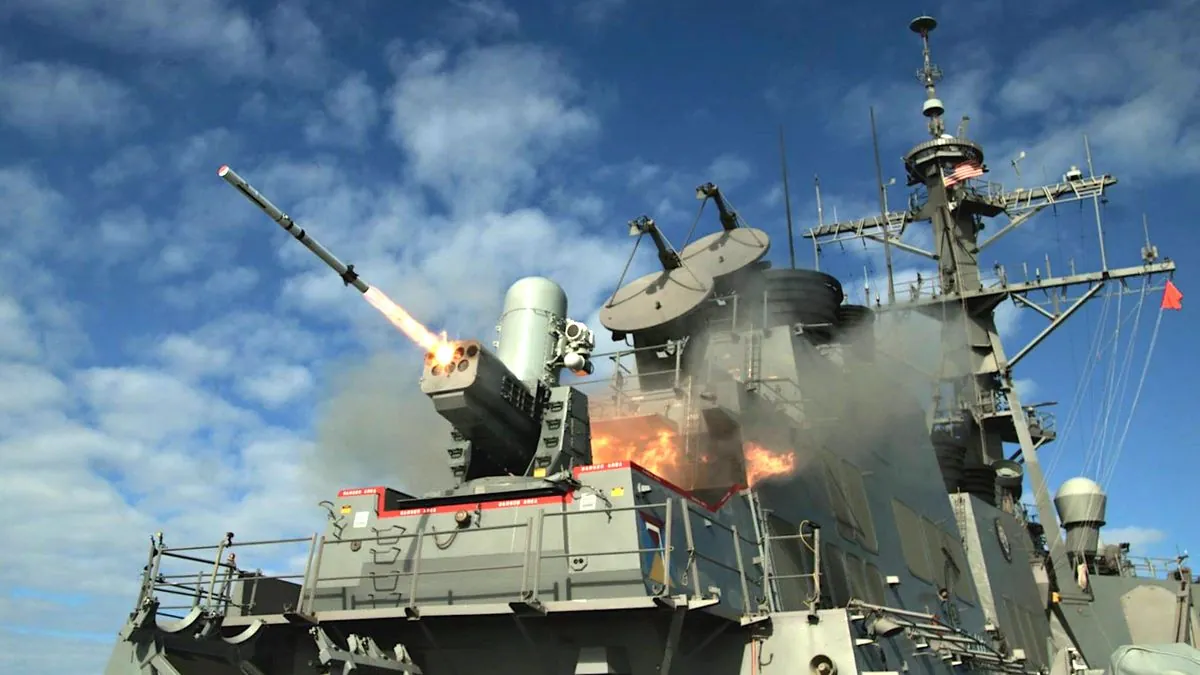US Navy Destroyers Intercept Iranian Missiles Over Israel
US Navy destroyers successfully intercepted Iranian missiles targeting Israel, showcasing advanced naval defense capabilities. The incident highlights the evolving nature of maritime warfare and missile defense systems.

On October 1, 2024, a significant naval operation unfolded as US Navy destroyers intercepted Iranian missiles aimed at Israel. This event marked a crucial development in maritime defense capabilities and the ongoing tensions in the Middle East.
Three Arleigh Burke-class destroyers, including the USS Cole, USS Bulkeley, and USS Arleigh Burke, positioned themselves near the Israeli coast. These advanced warships, first commissioned in 1991, demonstrated their formidable Aegis Combat System by launching interceptor missiles over land to counter the Iranian threat.
The Pentagon reported that 12 missiles were fired from two destroyers, sparking speculation about the specific weapons employed. Given the nature of the threat, it's likely that SM-3 missiles played a key role. These interceptors, designed to counter short to intermediate-range ballistic missiles, carry an Exo-atmospheric Kill Vehicle (EKV) capable of destroying incoming warheads through kinetic energy impact.

"12 missiles were fired from two destroyers, USS Cole and USS Bulkeley."
The use of SM-3 missiles, each costing approximately $11 million, underscores the high stakes involved in this operation. These sophisticated weapons have proven their effectiveness in the past, notably in 2008 when the US successfully used an SM-3 to neutralize a malfunctioning spy satellite over the Pacific Ocean.
This recent interception highlights the remarkable progress in naval technology since the early 2000s. The USS Cole, which suffered a devastating terrorist attack in Aden in 2000, has evolved into a formidable defensive asset. Similarly, the capabilities of modern destroyers far surpass those of earlier vessels like the Royal Navy's Type 42 destroyers, which had limited range and no overland capabilities as recently as 2005.
The incident also brings attention to the disparities in naval defense systems among allies. While the US Navy boasts advanced interceptor capabilities, other nations, including the UK, are still developing comparable systems. The Royal Navy's Type 45 destroyers, though modern, require upgrades to effectively counter advanced ballistic threats.
As tensions in the Middle East continue to escalate, the international community watches closely for potential retaliatory actions. Israel has expressed intentions to strike Iran, with oil infrastructure being a likely target due to its strategic and economic importance. However, any action that could impact global oil prices may face scrutiny, especially in the lead-up to the 2024 US presidential election.
The successful interception by US Navy destroyers serves as a reminder of the critical role naval forces play in regional security. It also emphasizes the need for continued development and investment in ballistic missile defense systems to protect both maritime and land-based assets in an increasingly complex geopolitical landscape.


































